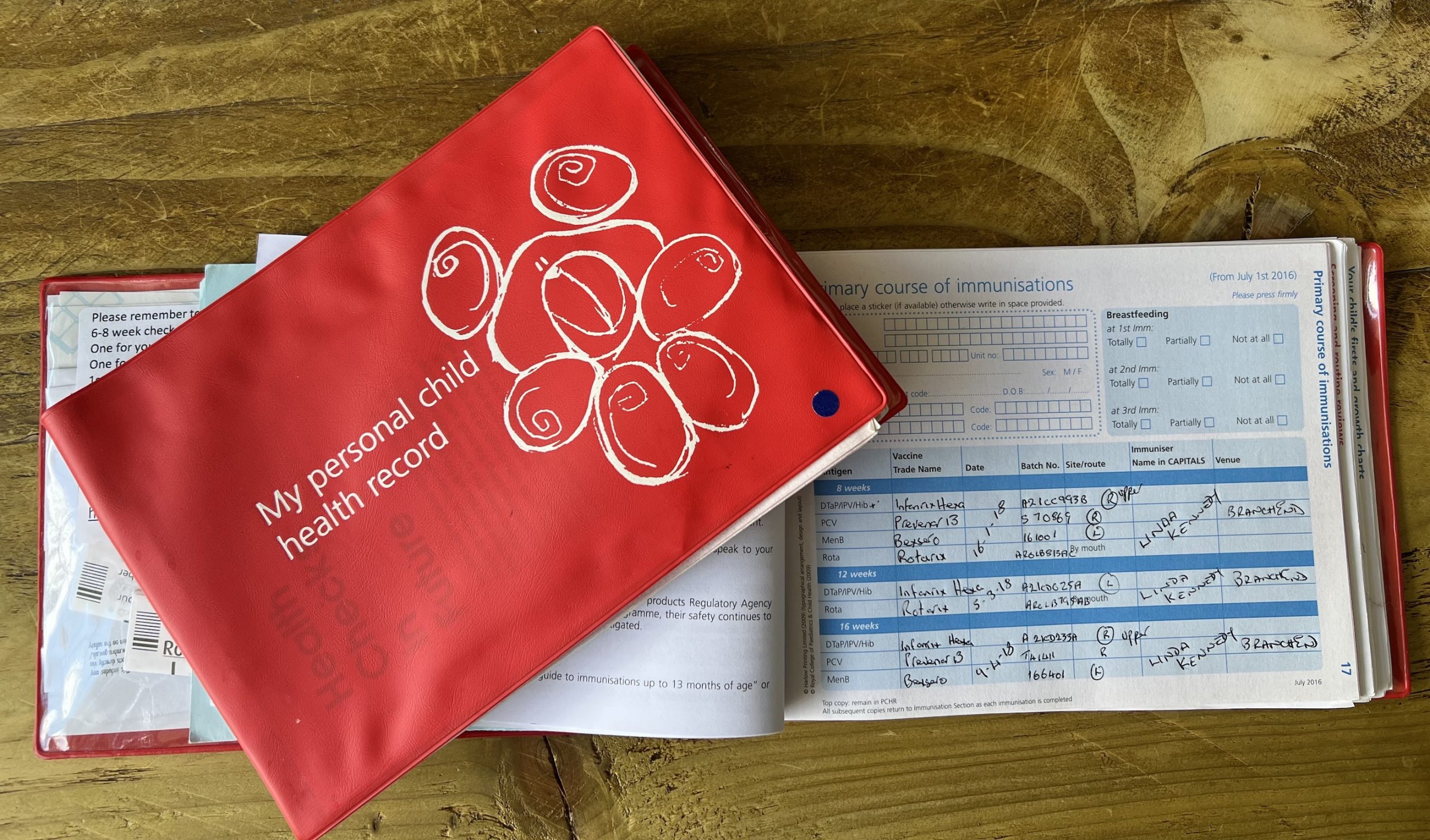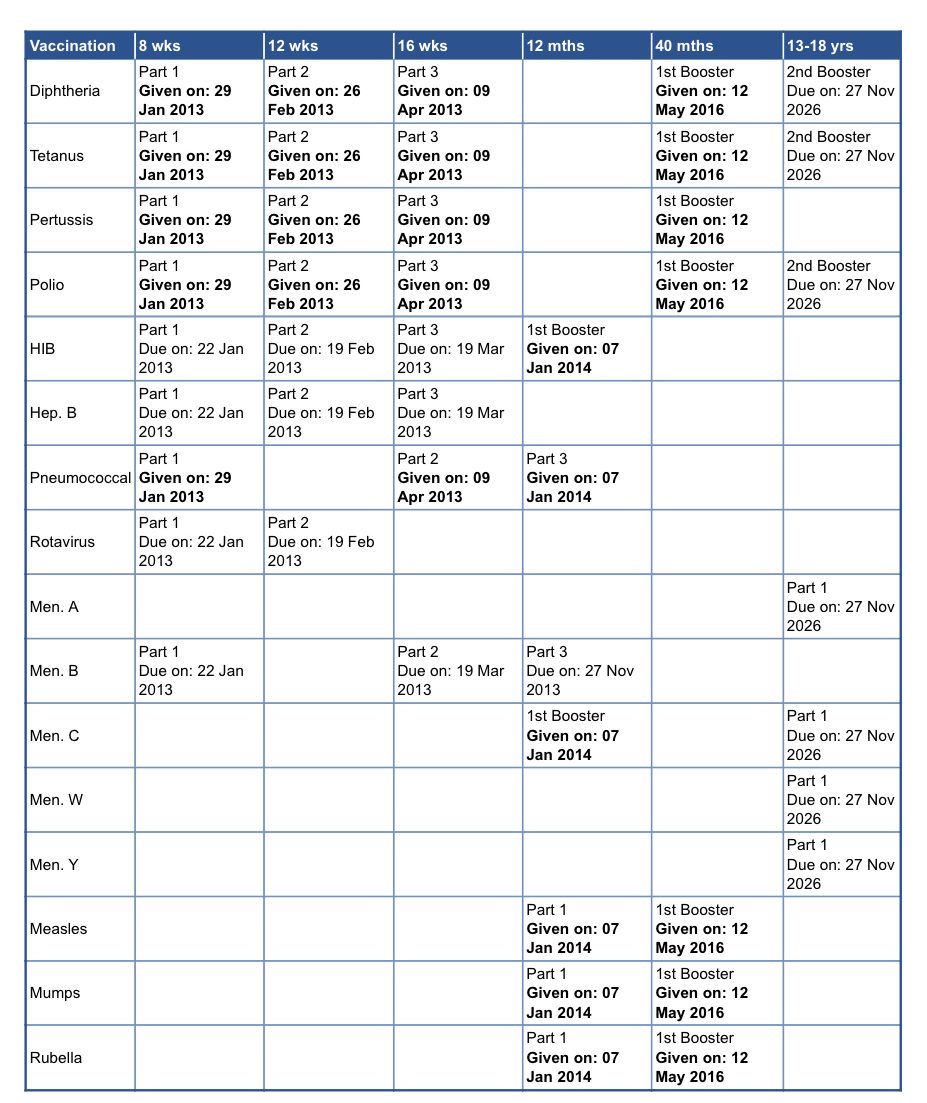Humanly Possible: Saving lives through immunisation
Today marks the start of World Immunisation Week.
The World Health Organization (WHO) holds it every year in the last week of April. The week is a testament to the incredible success of a worldwide vaccine programme that has saved millions of lives and continues to protect us from various diseases.
This year also marks the 50th anniversary of the WHO’s Expanded Programme of Immunisation (EPI). Following the successful eradication of smallpox, EPI aimed to protect children worldwide against six childhood diseases, such as polio, measles, and tetanus.
The programme now includes 13 vaccines that protect us against the human papillomavirus, COVID-19, and more. Since 1974, these vaccines have saved more than 154 million lives.
Yet despite the clear benefits, the latest figures in England show that all vaccine programmes for children under 5 are below their 95% target.
This means that more children are at risk of developing potentially severe diseases.
So, World Immunisation Week is an excellent time to discuss vaccinations. We’ll briefly cover how vaccines work before moving on to the NHS schedule for immunisations, the rise in vaccine hesitancy, and how to catch up on any jabs you have missed.
About Vaccines
Last summer, we published articles about vaccines, from their history and development to the life-saving flu and COVID jabs.
You can read the entire vaccine series, but here is a quick potted history.
Vaccines have been around for hundreds of years. The first vaccine as we know it was created in the 18th Century. It protected people against smallpox by exposing them to a small amount of cowpox.
This is still how modern vaccinations work. Exposure to a small, weakened, or inactive version of a disease helps our immune systems know how to defend us against that illness in the future.
Some vaccines protect us for life. Others, like flu and COVID, regularly need top-ups because of new strains.
Vaccine Schedule
The NHS vaccination programme runs from the first few weeks of life to old age.
The NHS revised the schedule in September 2023. The changes included HPV vaccination for teens switching to a single dose and the shingles jab being rolled out to people turning 65.
| When | Diseases protected against | Vaccine given | Trade name | Usual site |
|---|---|---|---|---|
| 8 weeks old | Diphtheria, tetanus, pertussis (whooping cough), polio, Haemophilus influenza type b (Hib) and hepatitis B | DTaP/IPV/Hib/HepB | Infanrix hexa or Vaxelis | Thigh |
| Meningococcal group B (MenB) | MenB | Bexsero | Left thigh | |
| Rotavirus gastroenteritis | Rotavirus | Rotarix | By mouth | |
| 12 weeks old | Diphtheria, tetanus, pertussis, polio, Hib and hepatitis B | DTaP/IPV/Hib/HepB | Infanrix hexa or Vaxelis | Thigh |
| Pneumococcal (13 serotypes) | Pneumococcal conjugate vaccine (PCV) | Prevenar 13 | Thigh | |
| Rotavirus | Rotavirus | Rotarix | By mouth | |
| 16 weeks old | Diphtheria, tetanus, pertussis, polio, Hib and hepatitis B | DTaP/IPV/Hib/HepB | Infanrix hexa or Vaxelis | Thigh |
| MenB | MenB | Bexsero | Left thigh | |
| 1 year old (on or after the child’s first birthday) | Hib and Meningococcal group C (MenC) | Hib/MenC | Menitorix | Upper arm or thigh |
| Pneumococcal | PCV booster | Prevenar 13 | Upper arm or thigh | |
| Measles, mumps and rubella (German measles) | MMR | MMRvaxPro or Priorix | Upper arm or thigh | |
| MenB | MenB booster | Bexsero | Left thigh | |
| Eligible paediatric age group | Influenza (each year from September) | (each year from September) Live attenuated influenza vaccine LAIV | Fluenz Tetra | Both nostrils |
| 3 years 4 months old or soon after | Diphtheria, tetanus, pertussis and polio | dTaP/IPV | Boostrix-IPV | Upper arm |
| Measles, mumps and rubella | MMR (check first dose given) | MMRvaxPro or Priorix | Upper arm | |
| Boys and girls aged 12 to 13 years | Cancers and genital warts caused by specific human papillomavirus (HPV) types | HPV | Gardasil 9 | Upper arm |
| 14 years old (school Year 9) | Tetanus, diphtheria and polio | Td/IPV (check MMRstatus) | Revaxis | Upper arm |
| Meningococcal groups A, C, W and Y | MenACWY | Nimenrix | Upper arm | |
| 65 years old | Pneumococcal (23 serotypes | Pneumococcal polysaccharide vaccine (PPV23) | Pneumovax 23 | Upper arm |
| 65 years of age and older | Influenza (each year from September) | Inactivated influenza vaccine | Multiple | Upper arm |
| 65 from September 2023 | Shingles | Shingles vaccine | Shingrix | Upper arm |
| 70 to 79 years of age (plus eligible age groups and severely immunosuppressed) | Shingles | Shingles vaccine | Zostavax (or Shingrix if Zostavax contraindicated) | Upper arm |
The NHS might offer you extra vaccinations depending on your circumstances or if you have a health condition.
Lower Rates and Hesitancy
Many routine vaccinations are below their targets.
The schedule of vaccinations was impacted by the pandemic, which put additional pressure on the NHS and prompted the prioritisation of COVID-19 jabs.
But there was also a rise in hesitancy to get vaccinated – often spurred by false online rumours.
The NHS website has an excellent section on vaccine safety, possible side effects, and the rigorous testing each jab must undergo before being used.
There is also a helpful video with a parent asking a GP why vaccines are safe for their child. You can watch the video below.
Regardless of the reasons, lower vaccination rates have increased measles cases. Up to 40% of children may not have had both doses of the MMR vaccine, which gives 99% protection against measles, mumps, and rubella.
HPV vaccinations – given to teens in schools to protect against genital warts and illnesses like cervical cancer – are still below pre-pandemic levels.
Only 7 in 10 girls in year eight at school have had an HPV jab, while fewer than two-thirds of boys have.
Similarly, up to 1 in 8 students in college or university may not be vaccinated against meningitis.
Getting Vaccinated
Registering babies and young children with a GP practice as soon as possible is vital. Once registered, you will be contacted when vaccinations are due.
You might receive a letter, call, text, or message through the NHS app.
Schools will take the lead in offering vaccinations. Parents or guardians will be asked to consent for their child to get a jab or nasal spray in the case of some flu vaccines.
For people with health conditions and older adults, you will be contacted when you can get vaccinated against conditions like flu, shingles or COVID.
Eligibility for vaccinations may change based on scientific advice, so check the NHS website for updates.
Catching Up
It is always possible to catch up on any missed childhood vaccinations.
If you weren’t offered or missed the HPV vaccine in school, it is free through the NHS up to your 25th birthday.
So is the MenACWY vaccine, named after the four strains of meningococcal bacteria – A, C, W and Y – that can cause meningitis and blood poisoning (septicaemia).


The best thing to do is to check your ‘red book’ for records of your vaccinations. You may also be able to see vaccination history in your GP health record on the NHS App.
If you have missed out on meningitis, HPV, or MMR jabs, please get in touch as soon as possible. We can also check your records if you don’t have the red book.
